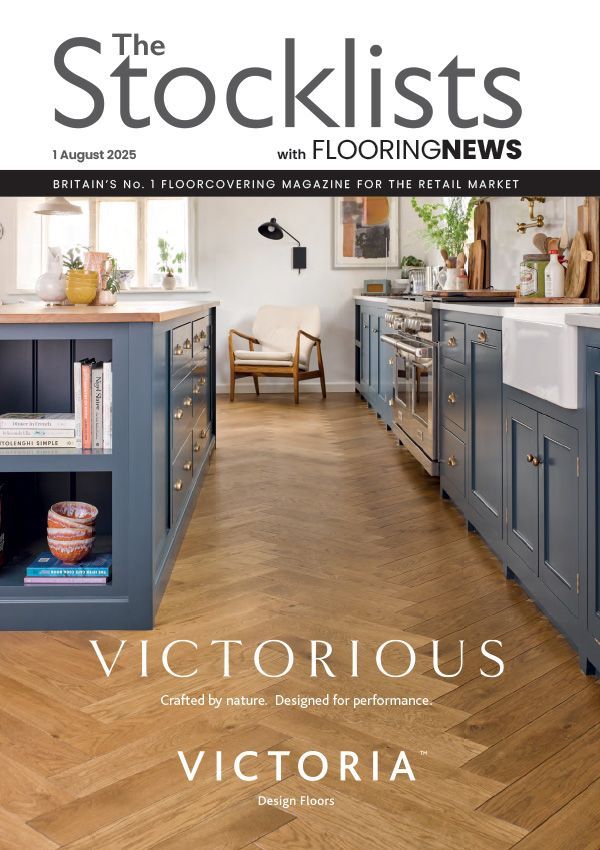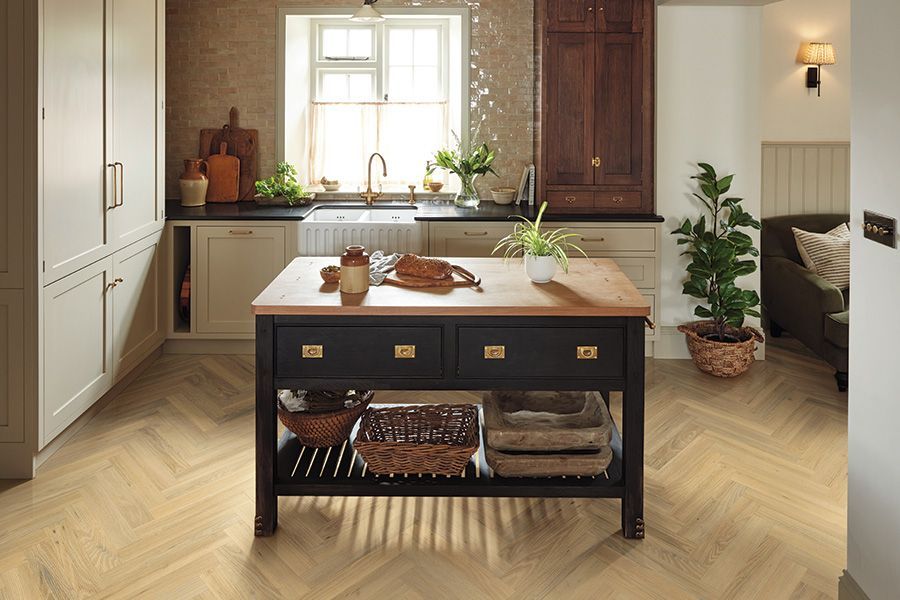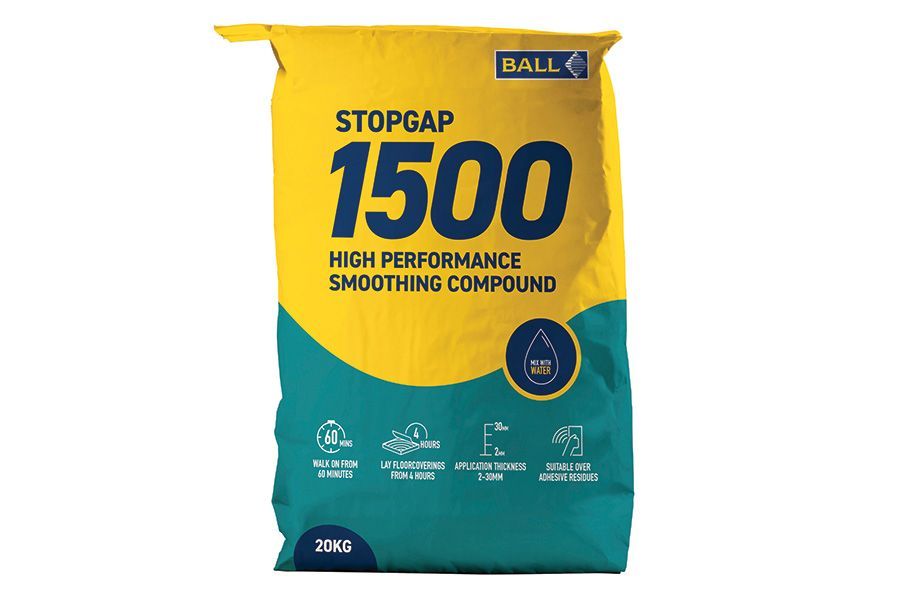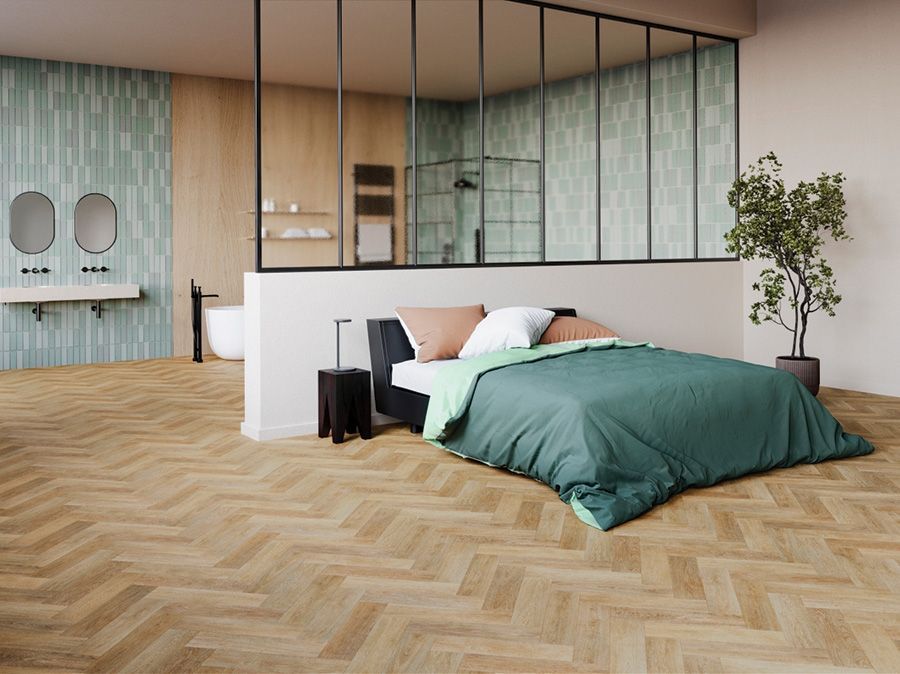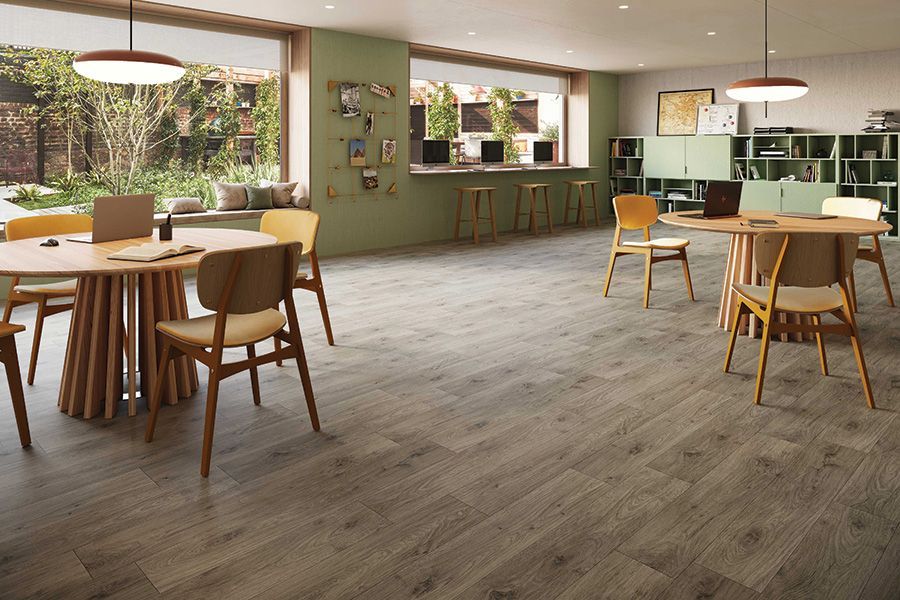Confidence builds for big-ticket purchases
July 23, 2021
The consumer confidence index for major purchases including flooring turned positive for the first time since the pandemic started this month, reaching its highest level since February 2020.
Retail analysts at GfK reported a seven-point swing in its big-ticket index, to a score of +2 – a fourth straight month of improvement. The GfK Major Purchases Index asks consumers if now is the right time to purchase high-value items such as cars, furniture or white goods.
GfK research director Joe Staton said the improvement "aligns with strong retail growth figures that reflect the gradual unlocking of the U.K. high street and release of pent-up demand as Brits hit shops, restaurants and venues.
"However, threats from increasing consumer price inflation, rising COVID infection figures, and the looming end of furlough and the Job Retention Scheme could put the brakes on this rebound," he said.
"Consumers are aware of these pressures, judging by the latest fall from -2 to -5 in their view of the general economy in the coming 12 months. What happens across the remaining summer months will frame consumer confidence for the rest of 2021 and beyond.”
"Consumers are aware of these pressures, judging by the latest fall from -2 to -5 in their view of the general economy in the coming 12 months. What happens across the remaining summer months will frame consumer confidence for the rest of 2021 and beyond.”
SEARCH OUR NEWS SERVICE
FEATURED ARTICLES

In this article, independent flooring consultant Richard Renouf explains how a customer’s rights and obligations change depending on the method of payment. So far in this series of articles we’ve looked at the things we need to consider when we sell to customers in a shop, and I’ve promised to look at online and off-premises sales in a future article. Before I do this, however, there’s an important matter we must consider. How did the customer pay? Credit card and store card payments and finance agreements (including interest-free credit) give the customer the right to claim against the finance provider instead of, or in addition to, the retailer; and other card or bank transactions may also give the customer the ability to ask for help from their bank. The Consumer Credit Act 1974 (CCA) was introduced to clarify the legal responsibilities of the parties involved in a credit sale. Usually there is the customer, the retailer and the finance provider and the transaction is actually circular: The consumer offers to buy the goods and enters an agreement to pay the finance provider, the retailer supplies the goods to the consumer but obtains payment from the finance provider (usually with the provider taking a commission or percentage), the finance provider pays the retailer and then recoups the purchase price and any agreed interest from the consumer. The advantage to the consumer is that they can spread the cost and have the goods immediately. The advantage to the retailer is that they get prompt payment from the finance provider, and, of course, the finance provider also makes a profit from the sale. The CCA makes clear that even though the consumer is actually purchasing from the finance provider, both the retailer and the finance provider have legal obligations under the contract even though the provider may never actually see the consumer or the goods. These obligations continue even if one of them goes out of business. If the consumer has a valid complaint, the CCA allows the consumer to claim against the finance provider as long as the purchase was more than £100 and less than £30,000, and it allows the consumer to claim the whole cost of the sale even if they only paid a small part of this on their credit card. The legal requirements are set out in Section 75 of the CCA and so a claim made under this legislation is often referred to as a ‘Section 75 Claim’. Before such a claim could be made in court the consumer must have contacted the finance provider to give them an opportunity to resolve the complaint, and the finance provider will have a procedure to investigate the complaint by contacting the retailer for information and possibly by asking the consumer to get an independent expert’s report where there is disagreement. If this does not get the complaint resolved, the consumer can raise a Section 75 Claim in the county court against the finance provider, or both the finance provider and the retailer. A chargeback may be part of the Section 75 process, but it can also by done by any bank or finance provider if their customer raises a query about a payment they have made. The bank can withhold payment to the retailer – or even take it back from their account – until the matter is investigated and the finance provider is satisfied that it should be repaid to one of the parties. The terms of the Mastercard, Visa, Amex and merchant processors allow for this to be done without asking the retailer first. Usually the retailer is told when it has been done and is then given a limited time to explain their side of things, and if this is not done on time or to the finance provider’s satisfaction the money will be returned to the consumer. Prompt attention to any chargeback can be successful when the complaint is not valid, but a poor response or failure to respond on time would make it very difficult to challenge and reverse the chargeback through the finance provider. Chargebacks can be made even when a customer has not made a complaint to the retailer, and so the retailer is unaware of any issues. I have never known a retailer succeed in suing a finance company over a chargeback they did not agree with, but, I have known cases where finance providers have rejected consumer complaints and the consumer has then proceeded to make a successful Section 75 Claim though the County Court which then, of course, results in a chargeback to the retailer. An unhappy consumer could also make a complaint to the Financial Ombudsman and as this is costly for the finance company this is something they try to avoid and may result in them doing a chargeback because it is the cheapest option. Citizen’s Advice (citizensadvice.org.uk) and Money Saving Expert (moneysavingexpert.com) have excellent guidance on their websites. www.richard-renouf.com
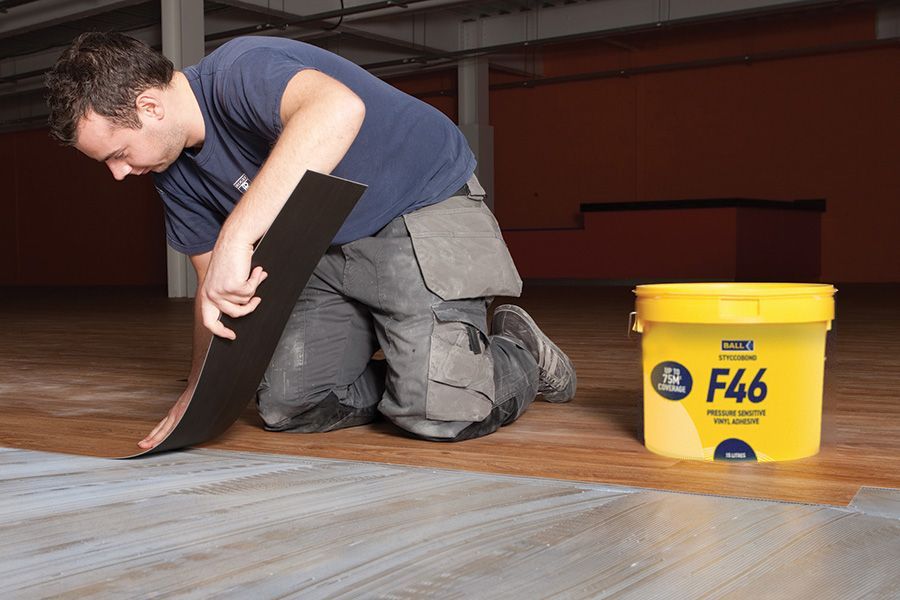
Given customers’ high expectations for luxury vinyl tile (LVT) installations, it is worth taking the time to ensure optimum results when installing them. Certain adhesives can help with this, including achieving precise alignment. Tim Green, Head of Training at the F. Ball Centre of Excellence, provides a guide to adhesive selection, including formulations with a range of additional features. Pressure sensitive adhesives are ideal for the installation of LVTs because they form an instant grab upon contact, so, once positioned, tiles or planks won’t move about as contractors work. They also offer an extended open time, reducing the risk of late placement and making them ideal for installations where more complex designs or patterns are being created. Some pressure sensitive adhesives are also formulated to reduce the incidence of trowel serrations showing through thin vinyl floor coverings, referred to as “grin through”, affecting the appearance of the finished installation. Temperature tolerant requirements There are specific applications where additional performance characteristics will be important to maintain the long-term aesthetic appearance of an installation. For example, when installing floor coverings in areas subject to extreme temperatures and temperature fluctuations, it is recommended to use a temperature tolerant adhesive. High temperatures or extreme temperature fluctuations can cause floor coverings to expand and contract significantly, which may lead to unsightly tenting in floor coverings and gapping at the edges of LVTs over time. This can be the case in conservatories or rooms with floor-to-ceiling windows, which are subject to “solar gain”, such as extensions with bi-fold doors. Temperature tolerant adhesives develop the high bond strength required to hold floor coverings securely in place in such environments, ensuring a long-lasting flooring finish. However, temperature tolerant adhesives have traditionally been “wet-lay”, and contractors requiring this type of adhesive have had to forgo pressure sensitive benefits. Hybrid solutions Advancements in hybrid polymer adhesives have enabled the development of high-performance vinyl adhesives with revolutionary combinations of properties, including combined pressure sensitive and temperature tolerant characteristics. For example, F. Ball’s Styccobond F49 Hybrid PS is a water-based, pressure sensitive vinyl adhesive that develops the extremely high bond strength and dimensional stability required to hold vinyl floor coverings firmly in place in areas exposed to extreme temperature fluctuations (from -20°C to +60°C). Whilst providing high initial tack, the adhesive allows contractors to lift and reposition floor coverings in the initial stages of drying, making it a great choice for installing tiles and planks, intricate patterns and bespoke designs that need precise alignment. Styccobond F49 is also resistant to moisture, meaning it is suitable for use in areas subject to water and high humidity, including kitchens and bathrooms. Checking floorcovering compatibility As well as selecting adhesives suited to the requirements of a particular project, it is always advisable to check the compatibility of particular floor coverings and adhesives. For these purposes, F. Ball produces its industry-leading Recommended Adhesives Guide (RAG). It’s available on the F. Ball website and as a free app, as well as a printed booklet. So confident is F. Ball in the recommendations featured in the guide that it guarantees the resulting bond performance for the entire lifetime of the flooring installation, as long as the advised subfloor preparation and installation procedures are followed. Alternatively, F. Ball’s technical service department are on hand Monday to Friday, 8.30am – 5.00pm, to answer your questions about F. Ball products and how to use them via phone and email. The F. Ball Centre of Excellence training and demonstration facility at F. Ball’s Staffordshire headquarters hosts training courses on achieving optimum results when installing LVTs that are free to attend for both flooring contractors and retailers. You can find details of upcoming courses and book a place for yourself or colleagues on the F. Ball website. F Ball & Co • www.f-ball.com
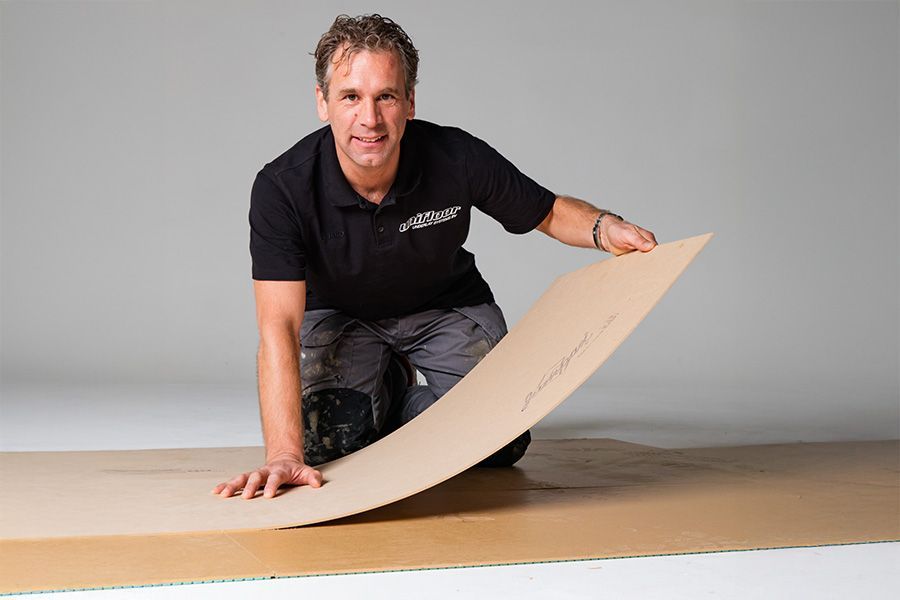
The Jumpax family by Unifloor is a fast-track floor preparation system designed to provide a super smooth subfloor to receive most glue down and loose lay floorcoverings. It provides excellent sound reduction, is easy to lay and reduces installation time and costs. The two self-adhesive MDF components of Jumpax instantly smooth over typical irregularities and eliminate the need for screeds, primers, ply boards and nails. It is not necessary to remove old floor coverings, loosening screeds or surface contamination. Suitable for domestic and contract installations Jumpax offers the ideal solution for problem floors. Whether it be underfloor heating systems, damaged, cracked, painted and contaminated subfloors, over raised access panels and to protect an existing antique floor Jumpax by Unifloor has the ideal solution.
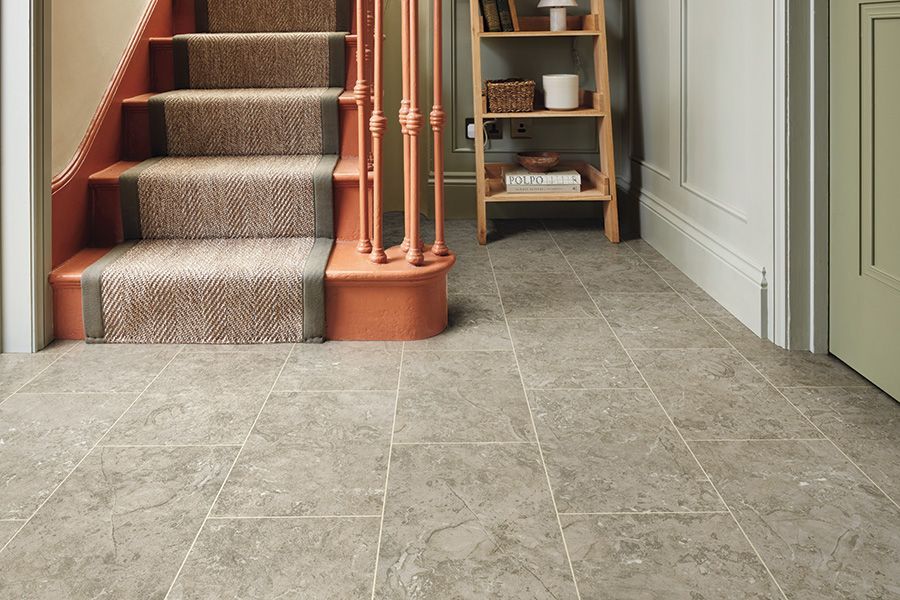
Karndean Designflooring’s new Knight Tile collection perfectly demonstrates why LVT is fast becoming the go-to choice for modern homes. Six new wood designs, with four herringbone options, and three stone designs have been meticulously handcrafted to replicate and enhance authentic features. Richard Allen, Sales Director at Karndean Designflooring said, “It’s our attention to detail that keeps customers coming back. Our designers have been inspired by beautiful samples of wood and stone, including reclaimed planks from an old wind-powered sawmill in Amsterdam and the natural veining of marble found in riverbeds, to create our latest collection of desirable floors. Our updated Knight Tile collection has something for everyone, bringing a sense of calm and sophistication to any room. “Everyone loves a little luxury and with our Knight Tile range nobody has to choose between style and budget. The new Knight Tile designs are guaranteed to transform any space without breaking the bank.”

When does a customer have the right to a refund, replacement or repair? This has long been an area of dispute, but the Consumer Rights Act 2015 simplified this and, although there are some exceptions, the general principles for orders placed in your store are: Late delivery: unless you have quoted a realistic lead time, the consumer can cancel the order and receive a refund if the goods are not delivered within 30 days (or within 30 days of the estimated lead time). If and when you become aware of any delays to a customer order, it’s best to advise them as soon as possible to minimise the risk of a cancellation. Incidentally, any repair work or replacements must also be expedited and carried out ‘without significant inconvenience’. Many retailers now have loan items to ensure they comply with this requirement and although this may seem expensive, it’s cheaper than having to issue refunds. Faulty goods: The customer has the right to reject faulty goods within 30 days of delivery. What is a fault? There is no legal definition, other than the need for them to be of satisfactory quality, fit for purpose, and corresponding to the description/sample. The Act says the goods must be free from minor defects, but what does that mean? I drew up a definition some years ago which has been helpful to many people I have advised: A defect is something inherent in a product that adversely affects, or may come to affect, the appearance, suitability or performance of that product now or during its reasonable expected lifespan. It’s worth noting that installation is not a separate service unless the customer has arranged their own, so if the installation is not satisfactory the customer can reject the goods. Who is the judge of this? Within the first six months, the burden of proof lies with the seller – so we as retailers must prove the goods are not faulty if we are going to reject a complaint. After six months, the burden of proof changes and the customer has to prove the goods are faulty, perhaps by way of an independent expert’s report. But, rejecting goods is one thing, what rights does the customer have? If the fault is brought to the sellers attention within 30 days, the customer can choose between a refund, replacement or repair. We cannot insist that they accept what we want to offer, but most customers are reasonable and if we respond to complaints promptly, this will rarely need to be an issue. If we offer a refund, this must be paid within 14 days. After 30 days, the consumer loses the right to a refund. They can still choose between a repair or replacement (and we could still give a refund if we chose to), but they cannot insist on their money back. However, this is taken from the date of the complaint, and if there are delays, the clock has stopped ticking and the customer can still ask for a refund if the matter is not resolved. After 6 months, not only do the consumer’s rights reduce, but the value of any refund can be reduced from this point to reflect any usage the customer has had of the goods. This may be a proportion of the price reflecting how much of the guarantee period has been used up, or if there is no guarantee, most furniture and flooring would be expected to last for the statutory period of six years, so this could be the basis for any calculation. Of course, there is a ‘but’ – if during this period the customer has to wait for a repair or replacement, this must also be taken into account. The flowchart (shown on page 26) summarises this and may be helpful as you deal with particular complaints. However, the rules governing sales taken in a customer’s home or online are different and we’ll cover these in a future article. If you come across an issue you can’t resolve before then, please get in touch.
BUSINESS NEWS
UK floorcoverings distributor Likewise Group held its annual general meeting (AGM) recently and the company is reportedly pleased to announce a continuation of the “very positive” sales trajectory reported earlier in the year as it approaches the end of H1 25. At the meeting, Tony Brewer, chief executive of Likewise, provided the following update to shareholders. Total gross sales revenue to 26 June 2025 has increased by 10.0% against the corresponding period last year, with absolute like for like being slightly stronger due to one less working day this year. The group with its two principal businesses, Likewise Floors and Valley Wholesale Carpets, continues to expand presence in flooring retailers and contractors through ever increasing point of sale displays, undoubtedly gaining market share despite what remains a subdued trading environment. Likewise will release its interim results for the six-month period ended 30 June 2025 on 9 September 2025. Tony Brewer, chief executive of Likewise Group plc, said: “It is really encouraging to see the investments made in the last four years really starting to deliver meaningful improvements in sales and subsequent profitability. The group continues to make significant progress towards our medium-term objectives of sales revenue well in excess of £200 million. “We have great teams of people in our various businesses and thank all our employees for their contributions as we look forward to an exciting future. Furthermore, we very much appreciate the continued support of suppliers, customers, shareholders and all stakeholders.”
Robust attendance, expansive international participation and forward-thinking innovation defined DOMOTEX asia/CHINAFLOOR 2025, which took place from 26 to 28 May at the Shanghai National Exhibition and Convention Centre (NECC). Celebrating its 27th edition, the event reaffirmed its leadership position in Asia’s flooring industry, setting new benchmarks for global outreach, innovation, and business opportunities. Despite ongoing trade complexities and industry challenges, the show welcomed an impressive 83,056 visitors from 124 countries – the highest number of participating nations since the event’s inception. The international visitation number continued its post-Covid growth trajectory reaching 18,121 overseas attendees. “DOMOTEX asia/CHINAFLOOR 2025 has solidified its position as Asia’s leading event for the industry and remains committed to advancing even further,” said Edwin Tan, CEO of Globus Events, show organizer. “While global trade may be shifting, business remains constant. We will continue to serve as a vital bridge for the industry, providing essential support for companies’ development and flooring industry’s progress.” – concluded Tan.
Carpet imports into the UK declined in April, however consistent growth for vinyl meant the overall flooring category remained nearly level, according to HMRC data compiled by The Furnishing Report. The data shows flooring imports down just 1% to £127.9m across carpet, wood, vinyl and linoleum, however carpet and rug imports specifically fell by 4.5%, down to £74.5m. The drop can largely be attributed to a 38% decline in goods arriving from Belgium, with Turkey’s carpet imports increasing 11% up to £18.6m, making it the largest single source of textile floorcoverings brought into the country. Vinyl imports saw an 8.1% rise to £37.9m, reportedly marking the eleventh straight increase on a year-on-year basis – largely driven by a continued recovery of shipments from China compared to a weaker 2024.
Cormar Carpets is pleased to announce the internal promotion of Alan Harris to the position of Sales Director, following the retirement of long-serving Sales Director Chris Isaacs.
GfK’s long-running Consumer Confidence Index increased by three points to -20 in May. All measures were up in comparison to last month’s announcement. Neil Bellamy, Consumer Insights Director at GfK, an NIQ Company, says: “There’s an improvement across all five key indicators in May, led by two forward-looking findings. The measure for personal finances looking ahead for the next 12 months has moved out of negative territory, increasing by five points to + 2. There’s a similar improvement in how consumers see the coming year’s general economy, with a four-point boost to -33. “It’s also worth noting the three-point rise in the measure on major purchases for big-ticket items such as furniture or electrical goods, with May’s score of -16 marking the highest level seen since the end of 2024. Have consumers taken comfort from the Bank of England’s May 8th quarter-point base-rate cut? And have they breathed a tiny sigh of relief since April when the sudden turbulence of the Trump Tariffs was prompting dire warnings of economic damage and a return to inflation? Those dangers – especially the issue of inflation – have not disappeared but the consumer mood in the UK does appear to have improved a little.” General economic situation The measure for the general economic situation of the country during the last 12 months is up one point to -46; this is seven points worse than in May 2024. Expectations for the general economic situation over the next 12 months have gone up by four points to -33; this is 16 points worse than May 2024. These are the current findings of the GfK Consumer Confidence Barometer (CCB) powered by NIM. The CCB has been published jointly by GfK and the Nuremberg Institute for Market Decisions (NIM), the founder of GfK, since October 2023.
Belgotex International has now wholly acquired Lano, one of Europe’s largest carpet manufacturers, The Furnishing Report has revealed. Belgotex International describes itself as Africa’s leading carpet and artificial grass manufacturer, and it also owns Associated Weavers as well as Balsan Carpets and Tiles. The company acquired 60% of Lano’s shares in 2022, and has now purchased the remaining 40%. The group has reportedly appointed Olivier Decouttere as Lano’s new chief executive following the takeover. Decouttere previously worked as Managing Director of Mattex Fabrics in Dubai, where he also led global sales for carpet backings. According to The Furnishing Report, Belgotex has announced the Lano name will remain in place, with no change to the customer-facing process. The African group reportedly praised Joe Lano and the Lano team for their historic efforts.
F. Ball and Co. Ltd. has added to its team of experts who deliver industry-leading training courses at the state-of-the-art F. Ball Centre of Excellence, with the appointment of Adrian Barker as training officer. Working alongside F. Ball head of training, Tim Green, Adrian will promote best practice in flooring installation by delivering free training courses at the purpose-built facility and further afield according to customer requirements. Adrian brings nearly four decades’ flooring industry experience to the role. Starting his career in 1987 on a youth training scheme with a small family-run flooring contractor, where he worked for 10 years installing textile and resilient floorcoverings in commercial settings, he later founded his own business installing carpet and LVTs in retail locations. He also began delivering training for flooring apprentices for a construction industry training provider. Adrian said: “I developed a preference for F. Ball products throughout my career – my local technical representative always supported me with answers to queries and solutions for projects. I have also attended training courses at the F. Ball Centre of Excellence and was impressed by the standard of provisions and the overall culture of the organisation – they even helped with the development and delivery of my own courses. So it’s a privilege to have the opportunity to join the team.” All flooring professionals can attend courses covering all aspects of subfloor preparation and floorcovering installation at The F. Ball Centre of Excellence for free, including specialist courses for both apprentices and seasoned professionals, involving practical demonstrations and exercises using high-performance F. Ball products. 01538 361 633 www.f-ball.com
Imports of soft flooring including wall-to-wall carpet and rugs were up 8.8% to £74.75m in March, according to HMRC data compiled by The Furnishing Report. With this increase, imports of carpet grew faster during the period than alternatives like vinyl.
GfK’s long-running Consumer Confidence Index decreased by four points to -23 in April. All measures were down in comparison to last month’s announcement. These are the current findings of the GfK Consumer Confidence Barometer (CCB) powered by NIM. The CCB has been published jointly by GfK and the Nuremberg Institute for Market Decisions (NIM), the founder of GfK, since October 2023.
Likewise Group, the UK flooring distributor, has announced its audited final results for the year ended 31 December 2024.
READ IT ALL ONLINE
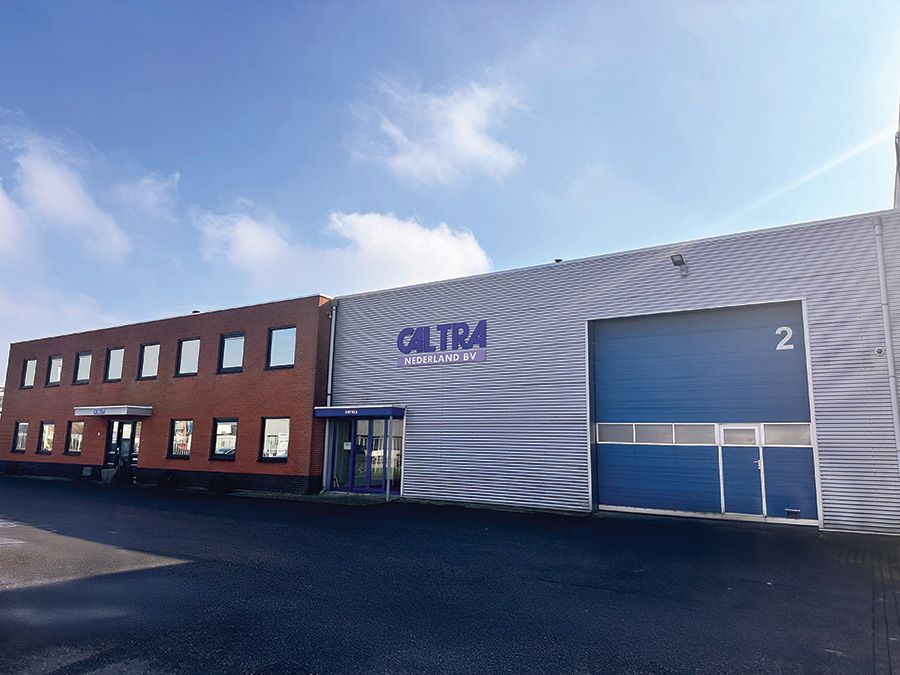
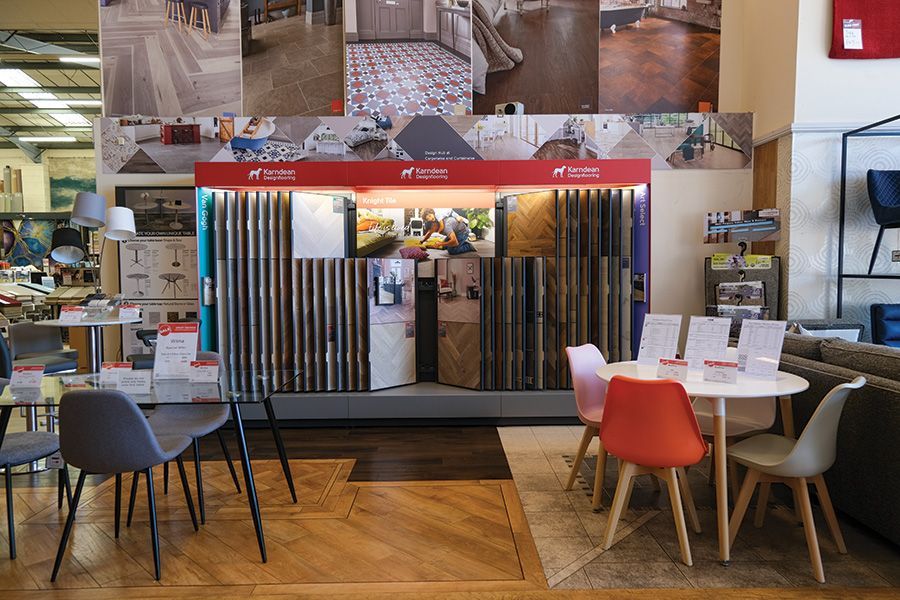 Show More
Show More
Wilsons Furnishers, the parent company of both Wilsons Carpets and Online Carpets, saw its profits rise to more than £2.4m in 2024, compared with a figure of £1.2m over the previous period. In its filings, the company’s directors said they were pleased to report the business performed “satisfactorily” during the year, and that it would continue to make investments into the business and people. According to these same filings, Wilsons Furnishers’ trading throughout 2024/2025 has thus far been in line with expectations, however it does point out increased operational and staff employment costs (owing to “increased UK government tax policies, international geo-political tensions and foreign exchange fluctuations”) as principal risks for the ongoing period.

Kerakoll, A Benefit Company B Corp certified operating internationally in the construction sector, and Steda Holding, have announced the completion of a strategic partnership agreement that involves the acquisition by Kerakoll of 60% of Caltra Nederland, a subsidiary of the Steda Holding. Caltra Nederland is a Dutch company specialising in the development, production and sale of supplementary cementitious materials, SCMs, and low-carbon clinker, founded in 1984 by Ludo van Nes. The aim of the transaction – formalised on 16 May – is to combine skills and resources to develop alternative binders with low carbon emissions, grasping the opportunities offered by the transformation of the cement sector, committed to reducing environmental impact, and by the implications for the premixed products sector. The decarbonisation of construction - with the cement industry responsible for about 7% of total greenhouse gas emissions - is one of the most important future challenges to achieve zero emissions. The use of additives, alternative materials and circular economy solutions, are some of the most promising solutions to reconvert the industry’s business models. “The acquisition of a majority shareholding in Caltra marks a further step forward in the innovation and sustainability process embarked on by Kerakoll,” said Fabio Sghedoni, Vice President of Kerakoll Group. “With this strategic operation,” commented Marco Zini, Group CEO of Kerakoll, “our group secures an important international presence, in the heart of Europe, in terms of know-how on components that will be crucial for the development of alternative cements, such as SCMs and low-carbon clinkers.” www.kerakoll.com

Karndean Designflooring, a trusted leader in the luxury vinyl market, is consolidating its reputation for excellence with upgraded instore displays. Following market research, refreshed display units have been designed to maximise brand recognition and make it easier than ever for customers to choose a floor they’ll love for a lifetime. Karndean’s new eye-catching modular bay units will display each product range in an easy to view format with large sample boards and in-situ roomset images. Featuring integrated LED lighting, convenient sample drawers and range brochure holders, each range unit highlights key product information to help customers find their perfect floor. Importantly, Karndean’s new in-store displays are designed with flexibility in mind, ensuring they can fit seamlessly into any retail space. The compact modular units can be configured individually or combined in sets of two or three, allowing retailers to customise their display based on the available space and the Karndean ranges they wish to showcase. This adaptable approach ensures that every retailer, regardless of showroom size, can present Karndean’s collections in a visually impactful and accessible way, enhancing the customer experience and driving sales. Richard Allen, Sales Director at Karndean Designflooring, said: “Our reputation as a go-to brand for high quality LVT in authentic natural designs is based on a deep and thorough understanding of the customer journey and what it takes to secure high levels of customer satisfaction. “We regularly undertake in-depth consumer research to help us understand how the decision-making process is evolving and how we can best support consumers as they select the ideal floor for their home. Our latest research included speaking with people at different stages of buying a new floor to understand their expectations, lived experiences and how we and our independent retailers can help them navigate this process. “In-store Point of Sale displays are an essential step in the customer journey, providing clear product information that can instil confidence and guide decision making. With products available to handle, customers can assess quality and durability in a way that is not possible when shopping online.” Trusted experts in LVT and its installation, Karndean’s independent retail partners are ideally placed to provide customers with key product information and valuable advice on achieving their preferred look. Karndean’s research showed that 49% of customers who visited an independent retailer sought advice from staff compared to just 27-29% who browsed the UK’s largest retail chains. Such positive interactions were shown to lead to increased levels of trust and ongoing customer loyalty. Of the customers interviewed who had recently completed a project, 39% reported that they only looked to brands they already knew and trusted. Richard explained: “This evaluation of the current market has informed our longer-term retail strategy to extend our brand awareness within the luxury flooring market and ensure that we continue to meet, and indeed exceed, customer expectations. As part of our long-term investment, the new Xplore POS display will enhance retail partner stores, making it easier for customers to explore, compare, and choose their perfect Karndean floor.” The new POS displays will be installed in Karndean’s Partner retail stores between April and July, then across its independent retail network by Spring 2026. www.karndean.com/en

